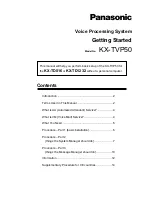
Operating Instructions
6-22
Selection of Operating Modes on CYCLE-SENTRY Equipped Units
The Thermo King CYCLE-SENTRY Start-Stop system is designed to save temperature and control fuel costs. The savings vary
with the commodity, ambient temperatures and trailer insulation.
CYCLE-SENTRY is designed for use only with products which do not require tight temperature control or continuous airflow,
such as all deep frozen products and non-perishable non-frozen products.
The start/stop nature of CYCLE-SENTRY does not satisfy the temperature control or airflow requirements for perishable or
temperature sensitive products. Thermo King therefore does NOT recommend the use of CYCLE-SENTRY control for these
products.
Since highly sensitive products will normally require continuous air circulation, CYCLE-SENTRY is selected through a
programmable menu screen:
• CYCLE-SENTRY units equipped with a TG-VI, Multi-Temp µP-IV, µP-V, µP-VI, SR-2 or SR-3 controller include CYCLS
screen in the controller display to select CYCLE-SENTRY (CYCLS YES screen) or Continuous Run (CYCLS NO screen)
operation. Refer to the appropriate Controller Operation and Diagnostic manual for detailed information about selecting
Cycle-Sentry.
• Units equipped with a µP-V, µP-VI, SR-2 or SR-3 controller include a CYCLE-SENTRY Fresh (CSFR) feature that can
lockout CYCLE-SENTRY operation and force Continuous Run operation within a programmable range of setpoints. This
feature can be used to provide continuous air circulation (within the programmed setpoint range) during CYCLE-SENTRY
operation. (not available for Multi-Temp MT µP-IV)
Your selection of an operation mode for the proper protection
of a particular commodity should use the following guidelines.
Examples of Products Normally Acceptable for CYCLE-SENTRY Operation
• Frozen foods (in adequately insulated trailers)
• Boxed or processed meats
• Poultry
• Fish
• Dairy products
• Candy
• Chemicals
• Film
• All non-edible products
Examples of Products Normally Requiring Continuous Run Operation for Air Flow
• Fresh fruits and vegetables, especially asparagus, bananas, broccoli, carrots, citrus, green peas, lettuce, peaches, spinach,
strawberries, sweet corn, etc.
• Non-processed meat products (unless pre-cooled to recommended temperature)
• Fresh flowers and foliage
These listings are not all inclusive. Consult your grower or shipper if you have any questions about the operating mode selection
for your type of load.
Continuous Run Operation
With CONTINUOUS-RUNoperation (CYCLE-SENTRY icon OFF in TG-VI, Multi-Temp MT µP-IV, µP-V, µP-VI , SR-2 and
SR-3 display), the unit will operate in its regular cooling and heating modes. Refer to instructions for “Starting Units on
Continuous Run, Diesel Operation”.
CYCLE-SENTRY (Auto Start-Stop) Operation
With CYCLE-SENTRY operation (AUTO START-STOP) operation (CYCLE-SENTRY icon ON in TG-VI, Multi-Temp
µP-IV, µP-V, µP-VI, SR-2 and SR-3 display), the CYCLE-SENTRY system shuts down the unit when the compartment
temperature reaches the setpoint and restarts the unit on controller demand. Refer to instructions for “Starting Units on
CYCLE-SENTRY, Diesel Operation”.
On CYCLE-SENTRY the unit start-ups may also be initiated by Defrost cycle initiation, engine block temperature switch
demand or low battery voltage.
If defrost is initiated manually or automatically (defrost timer or demand), the unit will start and operate on high speed. When
the Defrost cycle is complete, the unit will operate in whichever operating mode the controller is calling for until the compartment
temperature reaches setpoint.
In cold ambients, the CYCLE-SENTRY system automatically maintains engine temperature by restarting the unit if the engine
block temperature drops to -1 C . When the unit starts up because of low engine block temperature, the unit will operate in
whichever operating mode the unit controller is calling for until the battery is fully charged (option on some models) and the
engine block temperature rises to 32 C.
Summary of Contents for SLXi Spectrum
Page 17: ...Safety Precautions 2 5 Warning Decals...
Page 18: ...Safety Precautions 2 6 Warning Decals Information Decals...
Page 74: ...Unit Description 5 30...
Page 128: ...Controller Operation 7 28...
Page 156: ...Electrical Maintenance 8 28...
Page 234: ...Refrigeration Maintenance 10 22...
Page 309: ...13 Mechanical Diagnosis TK 482 TK 486 and TK 486V Engines 13 2...
Page 316: ...Mechanical Diagnosis 13 8...
Page 322: ...Refrigeration System Diagnosis 14 6...
Page 332: ...Single Temperature Refrigeration System Diagrams 15 10...
Page 339: ...Multi Temperature Refrigeration System Diagrams 16 7...
Page 340: ...Multi Temperature Refrigeration System Diagrams 16 8...
















































